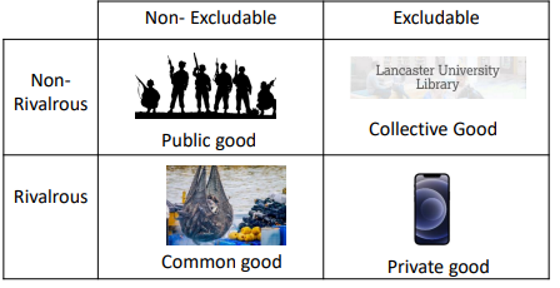Externalities and Public Goods
1/10
There's no tags or description
Looks like no tags are added yet.
Name | Mastery | Learn | Test | Matching | Spaced |
|---|
No study sessions yet.
11 Terms
Negative Externality
a cost of an activity that falls on people other than those who pursue that activity
an activity will be undertaken at a level grater than what is socially optimal
Positive Externality
a benefit of an activity received by people other than those who pursue the activity
an activity will be undertaken at a level less than what is socially optimal
What do people tend to make decisions based on?
the costs they actually incur and the benefits they actually receive - private costs/benefits
When is the Socially-Optimal Level of some good?
when the marginal social benefit is equal to the marginal social cost
Coase Theorem
if contracting is possible at no cost, people can always arrive at efficient solutions to the problems caused by externalities
requires that negotiations are costless, not always true in practice
Excludability
a person can be prevented from using a particular good
Rivalry
one person’s use of a good diminishes other peoples use
4 Sets of ‘Goods’

Public Goods
non-excludable and non-rivalrous in consumption
lower incentive to actually own the good, or contribute towards its upkeep
Free Riding
the individually optimal thing to do is to not contribute towards a public good and just reap the benefits from everybody else paying in
however if everyone thinks this, the good would be sub-optimally provided or not provided at all which leads to market failure
What does Free Riding Prevent?
private markets from supplying public goods